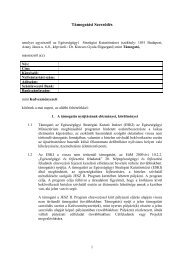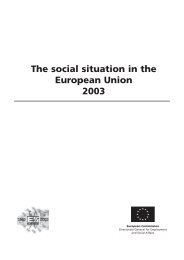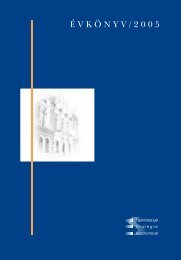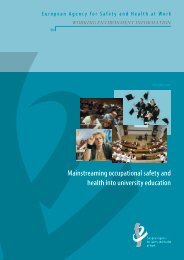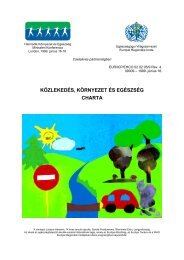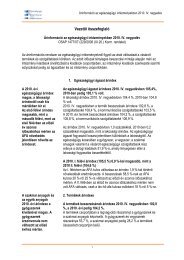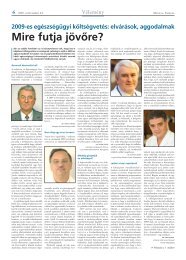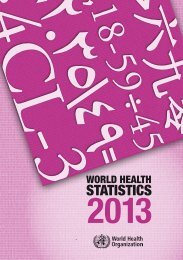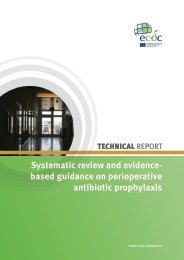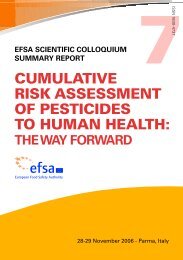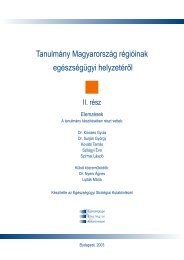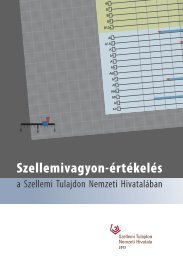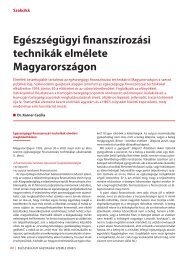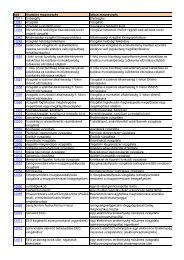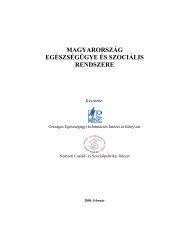WHO Technical Report Series, No. 981 - World Health Organization
WHO Technical Report Series, No. 981 - World Health Organization
WHO Technical Report Series, No. 981 - World Health Organization
You also want an ePaper? Increase the reach of your titles
YUMPU automatically turns print PDFs into web optimized ePapers that Google loves.
<strong>WHO</strong> Expert Committee on Specifications for Pharmaceutical Preparations Forty-seventh report<br />
4. QRM application for pharmaceuticals<br />
4.1 Training and education<br />
Training of relevant personnel in industry, MRAs and universities in QRM<br />
principles and applications is essential for its effective implementation. Industry<br />
employees should understand what QRM is, possess the skills necessary to<br />
apply it properly, and have access to appropriate resources to enable the effective<br />
practice of the QRM principles.<br />
In developing the training programme to support QRM activities,<br />
working instructions and procedures should be drawn up which clarify the<br />
strategy and define the tasks of all personnel involved in these activities. Specific<br />
training should be provided as required to enhance awareness. Staff with the<br />
responsibility for managing and reviewing risks should receive formal training<br />
in the relevant procedures.<br />
Cooperation between producers, traders and responsible authorities is<br />
vital. Opportunities should be provided for the joint training of industrial staff<br />
and MRAs to encourage and maintain a continuous dialogue and create a climate<br />
of understanding in the practical application of QRM.<br />
The success of QRM depends on the education and training of<br />
management and employees to understand the importance of QRM in producing<br />
and supplying safe pharmaceuticals.<br />
<strong>WHO</strong> <strong>Technical</strong> <strong>Report</strong> <strong>Series</strong> <strong>No</strong>. <strong>981</strong>, 2013<br />
76<br />
4.2 Responsibilities<br />
Successful application of QRM is dependent on a clear understanding of<br />
responsibilities by all personnel involved in the QRM activities. It is recommended<br />
that a cross-functional matrix of assigned responsibilities and accountabilities is<br />
drawn up and shared with all relevant personnel.<br />
The pharmaceutical manufacturer should ensure that appropriate<br />
knowledge and expertise are available for the effective planning and completion<br />
of QRM activities. QRM activities are usually, but not always, undertaken by a<br />
matrix of interdisciplinary teams. When teams are formed they should include<br />
experts from the appropriate areas (e.g. quality unit, product development,<br />
engineering, regulatory affairs, production operations, statistics, clinical, and<br />
others, such as sales, marketing or legal, as applicable), in addition to individuals<br />
who are knowledgeable about the QRM process.<br />
In this respect it is acceptable for external consultants to participate in the<br />
QRM matrix team where they can provide specific expertise or knowledge. Their<br />
role should be justifiable and clearly defined and the resultant accountability<br />
must be understood. A technical agreement or other equivalent document with<br />
the consultant may be appropriate where a GMP responsibility is assumed.



